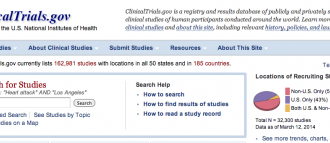Big data is changing our world, one industry at a time. These days, it seems like there are few industries that haven?t benefited from leveraging large data sets to cut costs and increase efficiency. Retail, travel, and tech are all pushing the limits of big data, but other key industries lag far behind, notably, healthcare. The healthcare industry, with its notoriety for high prices and lack of efficiency, could benefit hugely from integrating big data systems?so why hasn?t it taken the industry by storm? Here are 5 reasons this essential industry lags far behind others in leveraging big data.
1. Too Many Possibilities
One problem with big data is that people get overwhelmed and have trouble determining where to start. Healthcare administrators experience this overwhelm on a much greater scale than decision-makers in other countries because there are so many different facets of patient care. Is it better to focus on cutting down wait times in the ER, or cut down on waste in the hospital? Is it more important to prioritize minimizing medication mistakes, or cutting down on the shocking 30% waste in the $70 billion clinical trial industry? Many administrators are torn and have trouble making decisions and implementing big data solutions.
2. Security Concerns
The healthcare industry hit cannot seem to hide from security breaches anywhere. An astonishing 89% of healthcare organizations have experienced breaches, and the numbers just continue to rise each year. These breaches often affect millions of patients and have both financial and reputation-related consequences. Most IT experts in the healthcare industry are hyper-focused on reducing these breaches and their impact, and organizations are often reluctant to allocate resources toward big data when they?re so busy keeping patient data safe. That?s important not only for retaining the trust of patients but complying with the law?regulations on patient data are strict for a reason. Healthcare organizations have to do everything they can to protect themselves from legal action. This is because it?s such a common occurrence in the industry.
3. Less Room for Error
When a tech startup uses big data to promote growth or connect with customers, there?s plenty of room for trial, error, tinkering, and experimentation. In healthcare, the stakes are much higher and people?s lives are on the line. The errors in big data usage can result in higher patient costs, poor care, and even deaths. Therefore, most organizations are cautious about moving forward with these new tools. They want to be sure these tools can benefit both the organization and patients.
4. Implementation Challenges
Healthcare organizations vary in the type of equipment and infrastructure they have developed. Surprisingly, most organizations can be fairly old and outdated by modern standards. Computer systems may be years behind, and medical equipment may have only one use. Many of these devices are not collecting comprehensive data for analysis. Medical equipment is extremely expensive, and it?s not practical to replace it simply for the purposes of data collection. However, as equipment becomes more advanced, it will become easier to integrate these devices into big data systems and gain useful insights from them.
5. Cultural Limitations
Healthcare, though focused on research, better care, and more effective treatments, often has a culture that is very resistant to technological change. Physician resistance has been cited as a reason for poor data implementations within organizations, and that resistance can be reflected in other healthcare staff, making the process even more different.
Glimmers of Hope
The good news about all of this is that big data is on the radar for most healthcare administrators. Some administrators aren’t quite sure how to introduce it to their organizations. It?s only a matter of time before this integration leads to more big data in hospitals and clinics. Even now, researchers are beginning to utilize big data to predict some patients? likelihood of illnesses like cancer. Additionally, some companies are working to reduce medication errors using large databases. The potential for big data in healthcare has always been there?now it?s time to live up to that potential.









